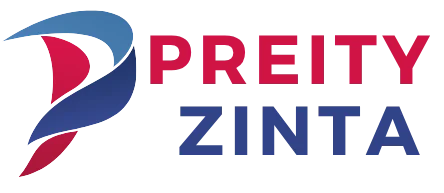Table of Contents
ToggleIn a world where communication is king, mastering basic language and learning skills is like having a golden ticket to the success express. Imagine trying to order a coffee without knowing the difference between a latte and a cappuccino—awkward, right? The assessment of these essential skills isn’t just a schoolyard rite of passage; it’s a crucial step in unlocking a person’s potential.
Whether it’s decoding a tricky text or mastering the art of conversation, these skills lay the groundwork for lifelong learning. With the right assessment tools, individuals can identify their strengths and weaknesses, paving the way for targeted improvement. So, let’s dive into the world of language and learning skills—because who wouldn’t want to sound smarter while ordering that latte?
Understanding Basic Language Skills
Basic language skills serve as foundational elements for effective communication and learning. Mastering these skills enables individuals to articulate thoughts clearly and engage in meaningful interactions.
Importance of Language Skills in Learning
Language skills play a crucial role in academic success. Proficient language users excel in reading comprehension and critical thinking. Individuals often find that strong communication skills enhance collaborative learning experiences and boost confidence during discussions. Proficiency in language aids retention of information and the ability to express ideas coherently. Furthermore, effective language skills contribute to social interactions, leading to stronger relationships and networking opportunities.
Components of Language Skills
Language skills consist of several key components. Vocabulary development forms the cornerstone of effective communication. Comprehension skills enable individuals to understand spoken and written language. Additionally, speaking skills allow for clear articulation of thoughts and ideas. Listening skills enhance understanding and facilitate better responses during conversations. Writing skills provide a medium for expression in academic and personal contexts. Each component interlinks, contributing to overall language proficiency.
Assessment Methods

Assessment techniques for basic language and learning skills vary widely. Effective evaluations include standardized tests and observational assessments.
Standardized Tests
Standardized tests offer structured evaluation methods to measure language skills. These assessments typically produce quantitative scores that can benchmark individuals against peer performance. Assessors use tools like the Woodcock-Johnson Tests of Achievement and the Peabody Picture Vocabulary Test for standardized measurement. Each test covers key components, such as vocabulary and comprehension abilities. Standardized test results reveal both strengths and weaknesses in language proficiency, guiding further instructional strategies. These tests are commonly used in educational settings, and they provide reliable data essential for ensuring academic success.
Observational Assessments
Observational assessments focus on real-world language use in various contexts. Evaluators monitor interactions during activities like group discussions or storytelling sessions. This method captures the nuances of communication, including nonverbal cues and social interactions. Observational assessments provide qualitative insights into a person’s language skills, highlighting areas for improvement that standardized tests might miss. Instructors can tailor observations to meet specific learning objectives, ensuring that assessments align with individual needs. Regular observation fosters a deeper understanding of a learner’s language development, supporting customized instructional approaches.
Learning Skills Assessment
Learning skills assessments provide insights into an individual’s capabilities, guiding educators toward effective instruction. Evaluating these skills helps reveal areas needing improvement.
Techniques for Evaluating Learning Skills
Standardized tests hold importance in assessing learning skills. These tests generate quantitative data, allowing comparisons with peers. Tools such as the Woodcock-Johnson Tests of Achievement effectively measure language proficiency. Observational assessments also play a crucial role; they capture real-world applications through group activities. Engaging in discussions offers context to understanding language use, revealing insights that tests might miss. Combining both approaches results in a comprehensive picture of an individual’s skills.
Importance of Learning Skills in Academic Success
Learning skills directly impact academic achievements. Proficient students excel in reading comprehension and engage meaningfully in critical thinking tasks. Language abilities enhance problem-solving capabilities and foster effective collaboration with peers. Strong communication skills enable learners to articulate thoughts clearly, boosting confidence in classroom interactions. Mastery of language roots success in various subjects, as educators expect clarity in expression across disciplines. Prioritizing these skills positions students for ongoing academic growth and lifelong learning opportunities.
Challenges in Assessment
Assessment of basic language and learning skills encounters various challenges. Understanding these obstacles helps educators improve evaluation methods.
Common Barriers to Effective Assessment
Factors such as limited resources hinder effective assessment of language skills. Test anxiety often affects students’ performance, leading to inaccurate evaluations. Cultural differences also pose challenges, as they can influence communication styles and understanding. Additionally, variability in learner engagement complicates assessments, resulting in inconsistent outcomes. Observational assessments might overlook essential behaviors, missing nuanced insights into language use.
Strategies to Overcome Challenges
Implementing diverse assessment tools enhances evaluation accuracy. Combining standardized tests and observational methods provides a more comprehensive view of skills. Creating a supportive environment reduces test anxiety, encouraging authentic performance. Educators can tailor assessments to accommodate cultural differences, ensuring fairness in evaluations. Regular feedback sessions further improve understanding, allowing for adjustments in teaching strategies. Engaging students actively during assessments fosters better communication, leading to more accurate skill evaluations.
Mastering basic language and learning skills is crucial for effective communication and academic success. By assessing these skills, individuals can identify their strengths and areas for improvement. This process not only enhances language proficiency but also fosters lifelong learning opportunities.
Utilizing a combination of standardized tests and observational assessments provides a well-rounded view of a learner’s capabilities. Addressing challenges in assessment ensures a more accurate evaluation, paving the way for tailored instructional strategies. Prioritizing language skills ultimately builds confidence and equips individuals for success in various aspects of life.







